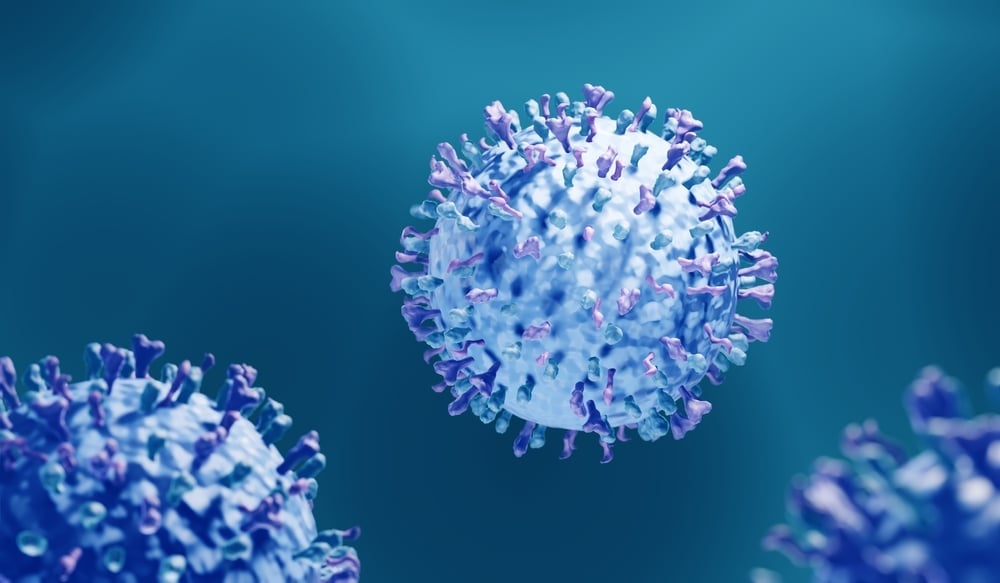Newsletter Signup - Under Article / In Page
"*" indicates required fields
By Shawn Gaskell, MilliporeSigma
RSV-related hospitalizations for 2022 have already surged to unusually high numbers, surpassing cumulative cases typically reported in late December each year, and we’re not even one month into the season.
While no age group is immune to RSV— respiratory syncytial virus— and the trouble it can cause, young children are being hit particularly hard this year. Roughly four in 1,000 children under six months of age, and more than two in 1,000 children between the ages of six months and one year have already been hospitalized.
While many different variables come together to determine the annual impact of RSV, experts have suggested that the pandemic, or rather the end of the pandemic as we knew it, is at least partially to blame. Quarantining, homeschooling, and masking practices in place for the majority of 2020 and 2021 reduced the spread of and risk of serious illness due to Covid-19 among children. At the same time, it also reduced the spread of other pathogens and viruses, essentially leaving children’s immune systems without an updated catalog of viruses or the instructions needed to respond to or fight them off.
Now that most families are back to business as usual, viruses like RSV are having a free-for-all with our children. Clinical testing of vaccines for RSV are under way— and the results show a promising 82% efficacy against hospitalization for babies younger than 90 days old and 69% for those younger than six months— but with the season already well under way, it’s early detection and access to timely medical care that will make the difference this year.
How early detection with RSV tests helps reduce the risk of severe illness
The trouble with RSV in children is that early on and at its mildest it mimics the common cold, the flu, and even Covid-19, producing a stuffy or runny nose, sore throat, mild headache, cough, fever, lack of thirst or appetite, and a general feeling of being unwell. But at its worst, RSV results in serious infections that can cause pneumonia or bronchiolitis. In very young children, particularly those under six months of age, required treatment for these conditions often requires IV fluids, oxygen, and in particularly severe cases, being placed on a ventilator.
Early detection of RSV — within the first few days of symptom onset — can help to ensure they receive appropriate therapeutic treatment, which may in turn reduce the risk of serious illness and hospitalization. RSV rapid diagnostic tests, performed in a pediatrician’s office, require only a quick nasal swab and typically produce results in under an hour. These tests are the quickest way to get the information needed, and are also available for the flu and for COVID-19 testing. Some pediatricians may also offer multiplex testing for COVID-19, the flu, and RSV, all with just one swab.
Can you really trust the results of an RSV test?
As with all medical tests, there’s always the potential that a rapid diagnostic test could produce a false positive or false negative result. But it’s important to understand that this doesn’t necessarily mean that the tests are unreliable. Test results are often impacted by factors outside of the manufacturer’s control. For example, if the test is conducted incorrectly or with too little sample. These types of variations in the real-world are why it’s so important to use trusted and reliable tests, and to understand what that really means.
The level and surety of accuracy in rapid diagnostic tests is tied to the different raw material components found within, and not all tests are created equal. How well a test will perform depends on the quality and consistency of each of these components, when paired with a robust lateral flow assay and properly assembled test.
A test kit manufacturer may have the highest quality of raw material components within a test, but if the manufacturing process is not designed and executed properly, the test will ultimately fail – simply because one or more of the steps along the path of the sample being tested cannot move along as initially intended. Much like dominoes lined up in a complex path, the dominoes will not complete the path if just one or two of them are out of place or missing completely.
While MilliporeSigma doesn’t make rapid diagnostic tests, we are a supplier of important raw materials within lateral flow assays and we know the importance of delivering consistent high-quality materials on-time every time because we’ve been doing it for decades. And more poignantly, because we know who’s on the receiving end of the tests we help support: your children.
While we’re waiting on the RSV vaccine — which may come soon, but not soon enough — early detection remains the best way to get informed and get access to appropriate, timely medical care and the support children need to fend off the worst the infection can bring. And early detection comes with a quick nasal swab at the doctor’s office.
Shawn Gaskell is the head of product management of diagnostic manufacturing materials at MilliporeSigma. Shawn builds crucial partnerships with IVD and medical device manufacturers for improved service levels and overall customer satisfaction.






